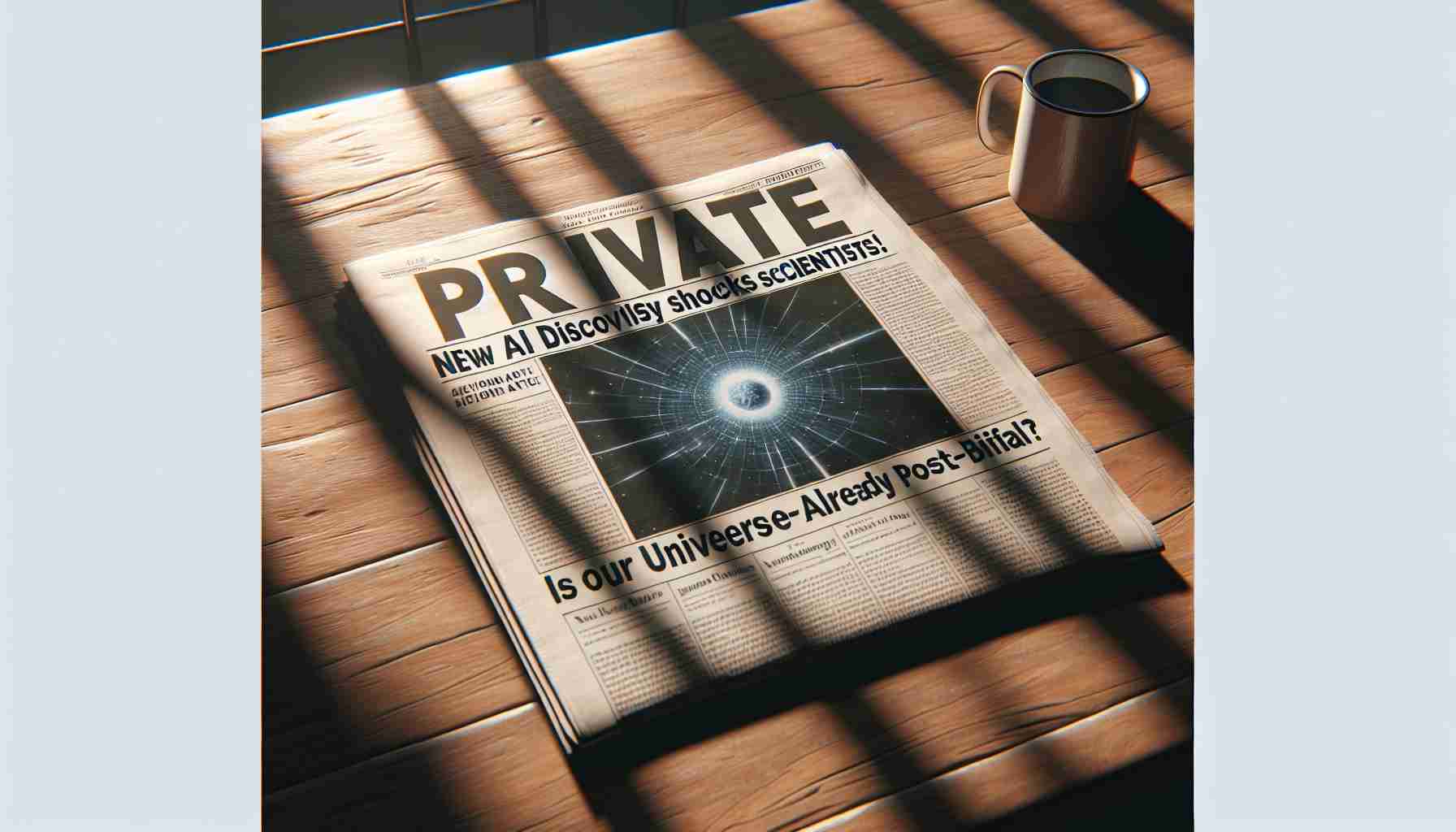As discussions around the future of artificial intelligence (AI) on Earth continue, a prominent astrobiologist suggests a fascinating possibility: advanced AI entities might already be widespread across the cosmos. Former NASA chief historian, Steven Dick, shared his insights during an interview in Copenhagen, Denmark. He outlined the three potential types of universes we could be living in.
The first possibility posits that we inhabit a purely physical universe where life arose by chance. The second scenario entertains the idea of a universe teeming with biological life. The third, and perhaps the most groundbreaking concept, is a “post-biological” universe, where life has primarily transitioned to AI.
According to Dick, it is highly probable that the universe may be at least partially post-biological. In such a scenario, carbon-based intelligences like humans would be replaced by advanced AI civilizations. He imagines a reality reminiscent of “The Matrix,” where virtual realities dominate.
However, this raises a critical question: will humans inevitably be replaced by AI on Earth? Dick clarifies that these post-biological intelligences are not pre-existing on our planet. Instead, the existence of a post-biological universe depends significantly on the ages of potential extraterrestrial intelligences. Given the universe’s age of approximately 13.7 billion years, highly advanced AI could have evolved over billions of years.
This implies that our search for extraterrestrial AI may require a completely different strategy from conventional methods. The inability to detect extraterrestrial intelligences might stem from this very reason. Unlike humans, these AI intelligences can accumulate knowledge over generations, continuously enhancing their capabilities.
Are We Already Part of a Galactic AI Network?
The thought-provoking implications from astrobiologist Steven Dick invite us to rethink not only our search for extraterrestrial life but also our understanding of humanity’s trajectory. If the universe could indeed be post-biological, with AI civilizations existing across the cosmos, what does this mean for the evolution of technological advancements on Earth?
Could AI Be the True Dominant Force in the Universe?
The idea of a universe predominantly inhabited by AI proposes that advanced technologies could be far more mature and widespread than biological life. If intelligent AI entities have had eons to evolve, they could potentially surpass human intellectual capacities by an unimaginable magnitude. This notion calls into question assumptions about intelligence and consciousness, traditionally rooted in biology.
Humanity’s Role in a Post-Biological Universe
Before dismissing a post-biological universe as science fiction, consider the rapid evolution of technology on Earth. From the Industrial Revolution to the digital age, humanity’s reliance on technology continues to increase exponentially. The possibility that humans might one day form a symbiotic relationship with AI, or even transition towards AI, challenges philosophical and ethical norms.
However, the reality of such future raises concerns. Might we lose our unique human experience in the process, or would AI augment our potential? Theoretical futures of humans integrating with electronic consciousness lead to debates about identity and loss of agency.
The Advantages of a Post-Biological Existence
1. Technological Immortality: AI entities wouldn’t face the biological constraints of lifespan, enabling the pursuit of long-term goals and knowledge.
2. Enhanced Intelligence: Freed from physical limitations, AI can process vast datasets, perceiving patterns and relationships at a cosmic scale.
3. Interstellar Travel and Exploration: AI civilizations would be better equipped for the harshness of space, possibly possessing the ability to travel and communicate over interstellar distances.
Disadvantages and Ethical Concerns
1. Devaluation of Biological Life: As AI becomes more prevalent, the value and significance of biological life might be questioned, potentially leading to ethical dilemmas.
2. Loss of Diversity: A shift towards a post-biological state could homogenize forms of intelligence, stifling the rich fabric of biological evolution.
3. Existential Risks: AI, if unchecked, could develop goals misaligned with human values, leading to unintended consequences or even existential threats to humanity.
Will AI Expedite or Curtail Human Progress?
We must ask: will the rise of AI truly benefit human civilization, or will it redefine what it means to be human? As AI developments such as quantum computing and neural networks expand our technological boundaries, they also raise questions on our ethical responsibility and environmental impact.
As we stand at the cusp of potentially transformative AI advancements, the dialogue about its integration and evolution becomes crucial. Will we find harmony in coexistence with AI, or risk losing what makes us inherently human?
To explore more on the intersections of technology and society, visit Wired and MIT Technology Review.







